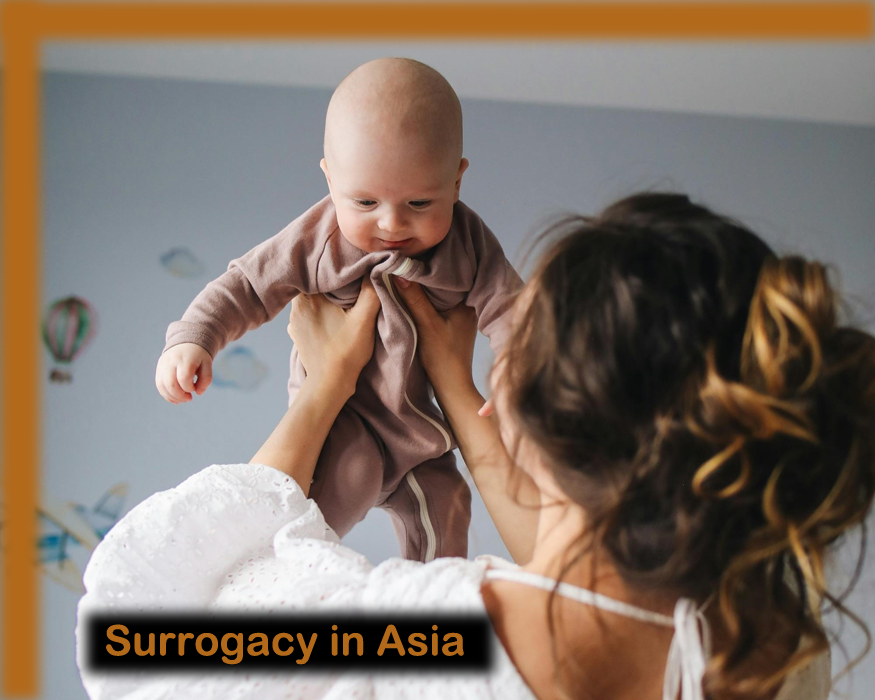Surrogacy is a highly popular practice worldwide that has helped and supported thousands of couples and individuals to achieve parenthood. Still, there are many more such couples and individuals that are still deprived of its myriad of benefits.
At the same time, there are considerable regional differences in surrogacy accessibility, particularly when comparing Asian and Western nations. Moreover, there are several reasons for this disparity in accessibility, including cultural beliefs, legal frameworks, and prevailing economic conditions.
Surrogacy in Asian countries
Huge variations in the legal frameworks
One of the major reasons for this disparity could come from the variations within the existing legal frameworks of countries around the world. That said, surrogacy laws are more defined and frequently more permissive in many Western countries. Also, the intended parents’ and surrogate’s rights are safeguarded by legal frameworks in nations like the United States and Canada. These regulations guarantee that surrogates receive just compensation and are handled morally at all times. Additionally, these nations have explicit laws governing the legal parenthood of the surrogate child, giving the intended parents security and comfort.
However, surrogacy laws tend to be more stringent in Asian nations. which was once a major centre for surrogacy, has, for example, severely tightened its laws, limiting the service to its own citizens and outlawing it for outsiders. At the same time, few of the Asian countries have completely prohibited this practice within their territories. Gradually, this makes it dangerous and more difficult for surrogates and intended parents to move ahead with their plans.
A wide gap within the cultural aspects
 Surrogacy isn’t just a procedure that involves few people and it also takes into consideration the society at large. So, we can say that another crucial aspect of this discussion is the wide variation in the cultures and traditions across the world. Hence, we can say that the acceptance and use of surrogacy are greatly influenced by culture. Differentiated family structures, such as those created through surrogacy, adoption, and other non-traditional methods, are becoming increasingly accepted in many Western societies. Also, people find it easier to consider surrogacy as a feasible option for starting a family because of this openness in culture.
Surrogacy isn’t just a procedure that involves few people and it also takes into consideration the society at large. So, we can say that another crucial aspect of this discussion is the wide variation in the cultures and traditions across the world. Hence, we can say that the acceptance and use of surrogacy are greatly influenced by culture. Differentiated family structures, such as those created through surrogacy, adoption, and other non-traditional methods, are becoming increasingly accepted in many Western societies. Also, people find it easier to consider surrogacy as a feasible option for starting a family because of this openness in culture.
Asian nations, on the other hand, frequently hold more conventional ideas about families and parenthood.
Sometimes people view surrogacy as unethical or taboo, which creates social stigma for those who choose this path. This social pressure has the potential to limit the accessibility of surrogacy by discouraging women from serving as surrogates and discouraging prospective parents from considering the procedure.
Major variation in the financial resources and planning
There is no denying that surrogacy comes as a highly cost-effective procedure. So, whoever thinking this way needs to come ahead with some major financial planning. That said, the state of the economy has an impact on surrogacy services’ accessibility and availability as well. More people in Western nations are finding surrogacy to be a viable option due to rising income levels and the availability of financing options for fertility treatments. The region’s higher surrogacy rates are also attributed to the existence of reputable fertility clinics equipped with cutting-edge technology.
On the other hand, the economic barrier poses a serious problem in many Asian nations. Even though the cost of surrogacy is generally less than in some Western nations, it can still be out of reach for the average person. Furthermore, surrogacy may become less accessible and appealing to prospective parents in certain areas due to a lack of cutting-edge fertility clinics.
Intended parents prefer higher Health standards in Western countries
When an intended parent chooses surrogacy as a path to parenthood, they largely focus on the quality of the healthcare and other services. Moreover, the type of medical care and support provided by the surrogacy agency also matters big time. That said, there are also significant differences between Western and Asian countries’ surrogacy health and safety regulations. Western nations frequently have strict laws controlling surrogacy services and fertility clinics. These laws guarantee that throughout the process, surrogates get the best possible medical attention and psychological support.
However, surrogacy laws pertaining to health and safety are laxer in many Asian nations. Because of ethical and security concerns, this may give rise to worries about the welfare of surrogates and the children they carry, ultimately making surrogacy less accessible.
What all you need to consider while making an informed choice?
If you are someone looking for high-quality medical care and don’t mind spending a good amount to realize your parenthood dreams, surrogacy in countries like the USA, Canada or even the UK would go perfectly. On the other side, given the stricter regulation within most Asian countries, you may not get enough options for surrogacy. This is where countries like Kenya, Colombia or even Georgia would suit your efforts.

Now, regardless of what option you go with, you must connect and discuss with a reputed surrogacy agency to help you with the same process. They will support and assist you at every step of your surrogacy journey. Also, they will help you to select and match a surrogate that suits perfectly to your expectations and needs. Hence, to make the most of your parenthood dreams via surrogacy, having the right support around is the key.
Moving ahead with the most important decision of your life
It would take you some effort to finalize a choice among the options in front of you. However, you must research properly in prior to get along. Although there are noticeable disparities in the accessibility of surrogacy between Asian and Western nations, there is a global trend towards increased awareness and regulation of surrogacy. Nations are realizing more and more how important it is to have laws that are unambiguous, safeguard all parties, and take ethical and cultural norms into account.
Also, in order to increase surrogacy accessibility in Asian nations, a multipronged strategy is required. This includes improvements in economic conditions and healthcare standards; cultural shifts towards greater acceptance of diverse family structures; and legal reform that offers a clear, moral framework for surrogacy.
Final words
Your parenthood journey is surely one of the most important decisions of your life. So, you must not leave any stone unturned while going about it. Also, a complex intersection of ethical, cultural, legal, and economic factors is represented by surrogacy.
Hence, anyone must think about surrogacy, whether in an Asian or Western country, to understand these complexities. It is hoped that surrogacy will become a more widely available choice as societies develop and grow more interconnected, providing a route to parenthood for those who might not otherwise have one.


No Comments